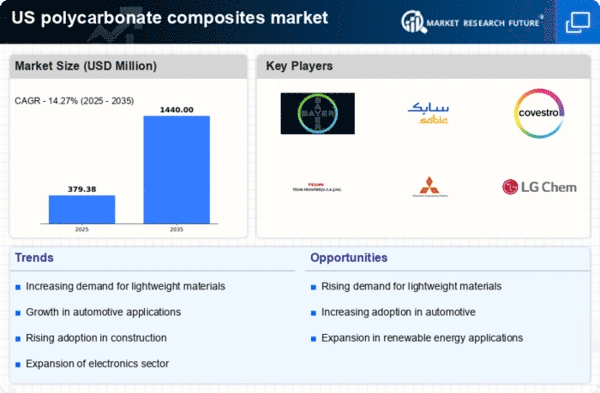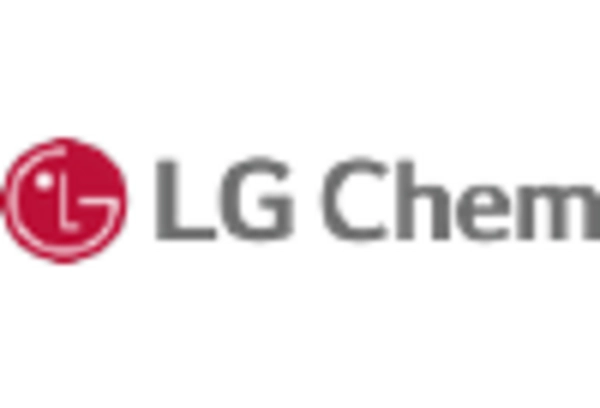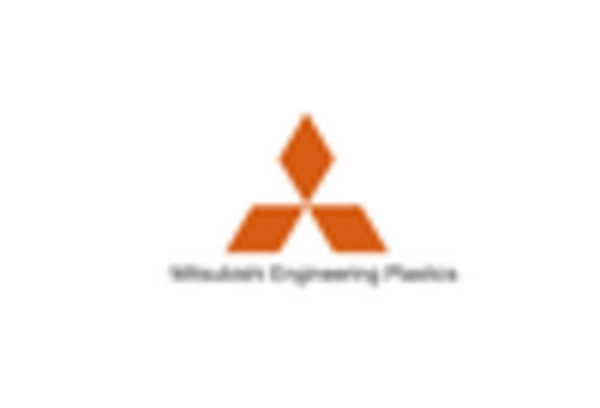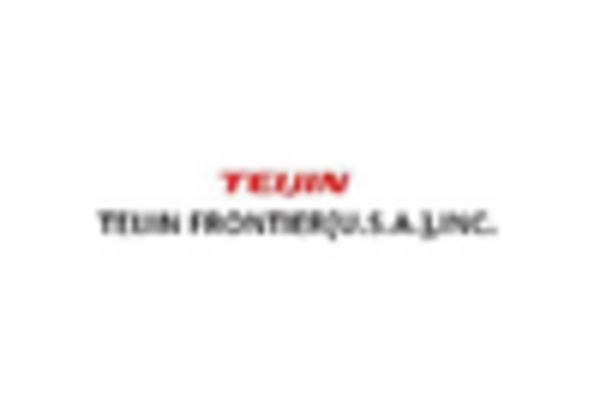Rising Construction Activities
The polycarbonate composites market experiences a notable boost due to the increasing construction activities across the United States. As urbanization accelerates, the demand for lightweight, durable, and energy-efficient materials in building projects rises. Polycarbonate composites, known for their high impact resistance and thermal insulation properties, are increasingly utilized in roofing, glazing, and façade applications. According to recent data, the construction sector is projected to grow at a CAGR of approximately 5% over the next five years, further driving the demand for polycarbonate composites. This growth is likely to be fueled by both residential and commercial projects, where the need for sustainable and cost-effective materials is paramount. Consequently, the polycarbonate composites market stands to benefit significantly from this trend, as builders and architects seek innovative solutions to meet modern construction challenges.
Increased Focus on Energy Efficiency
The polycarbonate composites market is positively influenced by the heightened focus on energy efficiency in various sectors, particularly in construction and manufacturing. As energy costs continue to rise, there is a growing emphasis on materials that can enhance thermal performance and reduce energy consumption. Polycarbonate composites offer excellent insulation properties, which can lead to lower heating and cooling costs in buildings. Recent studies indicate that buildings utilizing polycarbonate materials can achieve energy savings of up to 30%. This trend aligns with the broader movement towards sustainable building practices, where the polycarbonate composites market plays a crucial role. As regulations and standards for energy efficiency become more stringent, the demand for these composites is expected to increase, providing manufacturers with opportunities to innovate and expand their product offerings.
Growing Demand from the Electronics Sector
The polycarbonate composites market is experiencing a surge in demand from the electronics sector, driven by the need for lightweight and durable materials in electronic devices. As consumer electronics become more compact and portable, manufacturers are increasingly turning to polycarbonate composites for housings, screens, and components. These materials offer excellent impact resistance and optical clarity, making them ideal for various electronic applications. Recent market analysis indicates that the electronics industry is expected to grow at a CAGR of around 6% over the next few years, which could significantly benefit the polycarbonate composites market. This growth is likely to be fueled by advancements in technology and the increasing integration of smart features in electronic devices, further solidifying the role of polycarbonate composites in this dynamic sector.
Technological Innovations in Manufacturing
Technological advancements in the manufacturing processes of polycarbonate composites are driving growth within the market. Innovations such as improved extrusion techniques and enhanced polymer formulations have led to the production of composites with superior mechanical properties and reduced weight. These advancements not only enhance the performance of polycarbonate composites but also lower production costs, making them more accessible to various industries. The market is witnessing a shift towards automation and smart manufacturing, which could further streamline production and improve product quality. As manufacturers adopt these technologies, the polycarbonate composites market is likely to see an increase in applications across sectors such as automotive, aerospace, and consumer goods, where high-performance materials are essential. This trend suggests a promising future for the market as it adapts to evolving technological landscapes.
Regulatory Support for Lightweight Materials
The polycarbonate composites market is likely to benefit from regulatory support aimed at promoting the use of lightweight materials across various industries. Governments and regulatory bodies are increasingly recognizing the advantages of lightweight composites in reducing energy consumption and emissions, particularly in transportation and construction. Policies encouraging the adoption of such materials can create a favorable environment for the polycarbonate composites market. For instance, initiatives aimed at reducing vehicle weight to improve fuel efficiency are driving automotive manufacturers to explore polycarbonate composites as alternatives to traditional materials. This regulatory push could lead to increased investments in research and development, fostering innovation within the market. As a result, the polycarbonate composites market may see enhanced growth opportunities as industries align with regulatory frameworks promoting sustainability and efficiency.

















